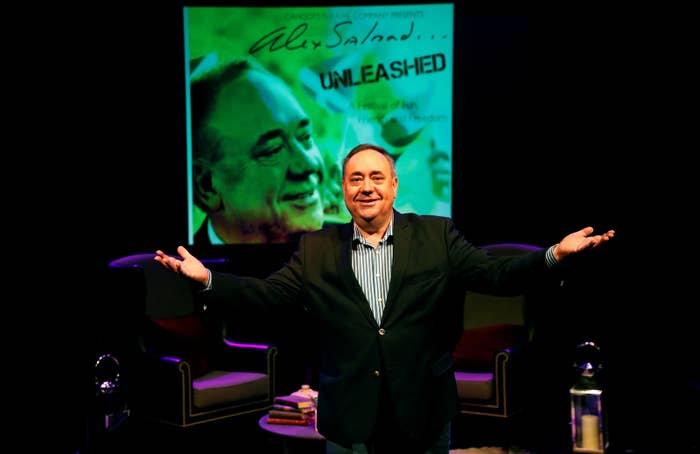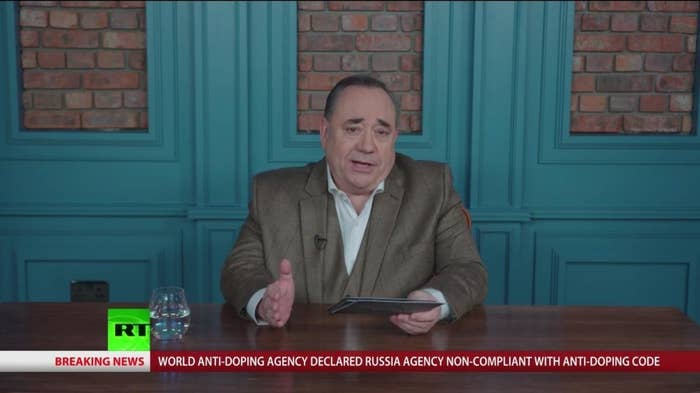
Former Scottish first minister Alex Salmond misled viewers by not disclosing that a series of audience tweets and questions for his political TV show on the Kremlin-backed RT channel were sent by people connected with the show, according to the UK's broadcast regulator Ofcom.
Weeks after the regulator launched a series of investigations into new coverage from RT, previously known as Russia Today, Ofcom handed down a report into an embarrassing incident on the very first episode of Salmond's chat show.
In November last year, news outlets cast doubt on the authenticity of the tweets aired during Salmond's feedback segment, which featured him fielding softball questions from members of the public.
At the start of the show, Salmond told viewers: "Each week I’ll be reading out your tweets and your emails so please get in touch."
But in a report released on Monday, Ofcom found that four of the six tweets used in the programme "were sent by people connected either directly or indirectly to the
production of the programme or to the presenter in some way".
One was from a "friend of the cameraman and not someone known to Mr Salmond" and was submitted "verbally". After seeing the question got to air, he posted it on his Twitter account.
Another was "from someone who happened to know Mr Salmond through a previous employment relationship" who had submitted a question in a letter to Salmond. He'd asked for the question to be "attributed to his Twitter account, for which he used a pseudonym".

A third tweet was from the show's series director and had been "used in a rehearsal" for the show. The show claimed the tweet was then "inadvertently" included in the final airing.
In defending the airing of the "tweets", RT argued there was "no reason why it would have mattered to the viewers where those comments and questions came from", but also said the show had "minor teething problems".
Ofcom still found the show breached rule 2.2 of its Broadcasting Code, which covers factual programming, but accepted many of the arguments of the producers that the audience was not "materially misled".
"Ofcom considered that viewers would have been under the impression that the four questions quoted by Mr Salmond had originated from members of the public wholly unconnected with the programme or with him, when this was not, in fact, the case," the regulator said.
An RT spokesperson complained that the news organisation had not been advised of the release of the report in advance.
"This was a notable and worrying example of Ofcom’s orchestration of the media in this matter by publicising, without notice to RT, its provisional findings for its decision in this case in a statement made on April 18th," the spokesperson said.
"This was before it had heard, let alone had time to consider, RTs representations on its Preliminary View. This gives rise to grave concern over the fairness of Ofcom’s process and agenda.
"The concern is heightened as Ofcom is using powers that exist for protection against serious matters to find in breach this trivial teething problem – a real sledgehammer to crack a nut."
The report comes on the heels of Ofcom's decision to open seven separate investigations into RT for the channel's coverage of the poisoning of former Russian spy Sergei Skripal.
RT's Skripal coverage prompted British politicians to call for the Russian TV outlet to have its licence revoked.
Salmond defended appearing on the network during a recent episode, going on to argue that Ofcom revoking RT's licence would "make a mockery of free speech".
RT has been contacted for comment but had not responded by the time of publication.
